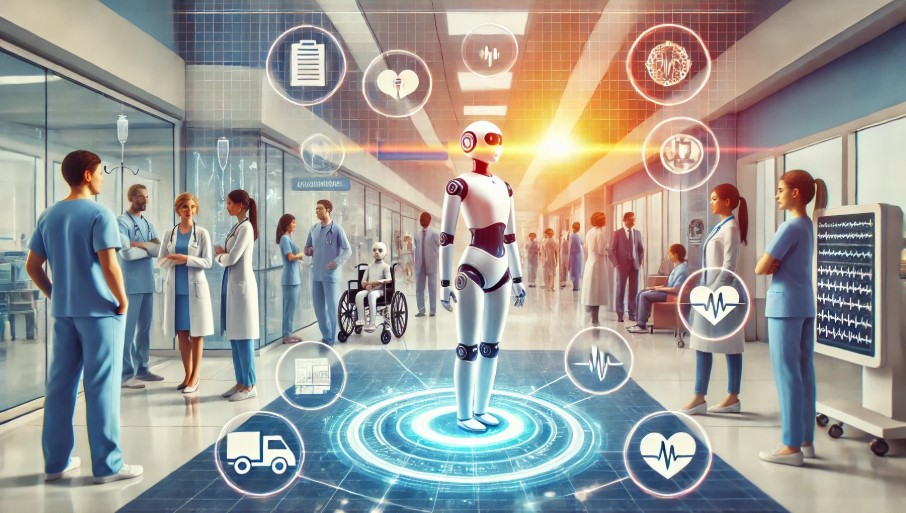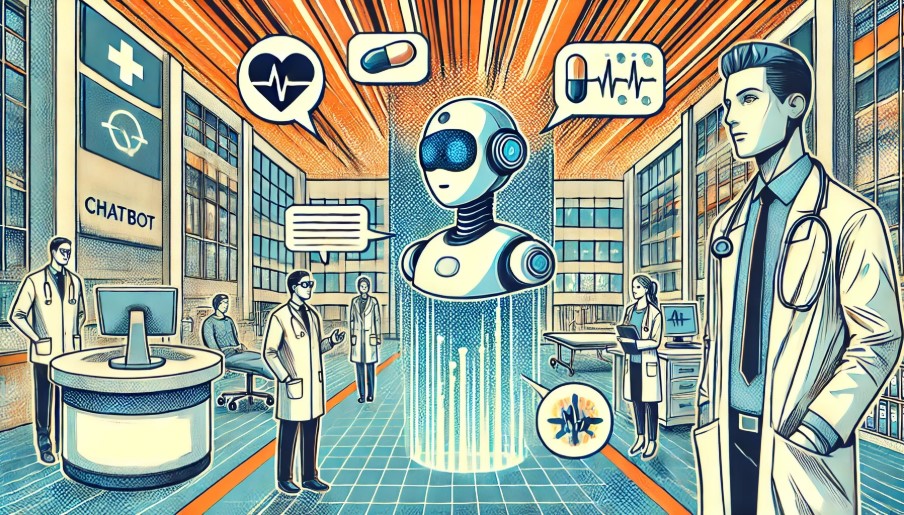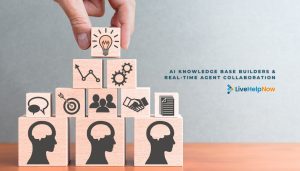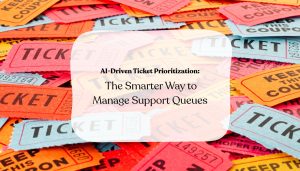The healthcare industry faces many difficult challenges. These include everything from staffing and supply ordering to patient diagnosis and treatment. But what if the right technology could help resolve such challenges? Healthcare chatbots are the answer. Chatbots in healthcare offer hospitals and medical practices a wide array of benefits that include:
- Easy scheduling of medical appointments
- Reduced waiting time
- Fast symptom assessment and treatment
- Efficient invoicing
- Personal assistance
AI-driven chatbots enable the healthcare industry to save time and money. Such digital healthcare services also improve patient diagnoses and outcomes. Let’s take a look at how.

1. Rapid Symptom Assessment
Determining the symptoms that a patient presents with is the first step towards successful treatment. A symptom checker bot such as Conversa can ask patients relevant questions and understand symptoms like a real doctor. It can then automate care. For example, a triage chatbot can help identify high-risk patients and then put them in contact with the appropriate healthcare provider and medical team. The result is invaluable preventive care and high-quality care for patients.
This ability to help with patient triage was especially critical during the worst of the COVID pandemic. Conversational chatbots integrated with Primary Care EMR were able to guide patients to crucial information and tell them how to get help via artificial intelligence. Using a small practice EMR can help providers securely manage patient data while ensuring HIPAA compliance. They also aided patients in finding vaccination locations.
Healthcare chatbots enable caregivers to access important symptom details before meeting the patient. This provides doctors and healthcare institutions with a clearer understanding of the patient’s current health status. It also gives them the opportunity to create a rapid, effective treatment plan that reduces hospital visits and admissions, supported by the best EHR for mental health private practice.
2. Patient Information Collection
It takes time and effort to acquire patient data. The digital customer experience hastens this process. Patients can easily provide their name, address, contact number, symptoms, etc. to the chatbot. This frees up time for nurses and doctors to provide much-needed care instead of gathering information. Plus, the chatbot can save this data. This simplifies patient admissions, the tracking of symptoms, and record-keeping. When a question turns into work – calling offices, coordinating between doctors, fixing billing issues, or figuring out Medicare benefits – patients often need more than an automated response. That’s where a dedicated advocate can help. Understood Care matches Medicare patients with a Personal Care Advocate who can help handle “calls, appointments, paperwork, and doctor coordination,” often usually $0 with Medicare.
3. Fast, Easy Appointment Scheduling
One of the tougher challenges in the healthcare industry is to book appointments. How many times have you had difficulty getting through to an appointment scheduler at your own doctor’s office? Medical practices are hectic environments and it’s not unusual to be put on hold or forgotten altogether when trying to make an appointment. Modern medical facilities are addressing these inefficiencies through healthcare application development that streamlines the entire appointment scheduling process.
Healthcare organizations can also leverage advanced EMS scheduling software to streamline appointments for emergency medical services, ensuring timely and efficient care. Plus, chatbots can be designed to work with CRM systems to help track visits and make upcoming appointments. For those enrolled in medicare advantage plans Healthpilot, chatbots can simplify scheduling by coordinating with plan-specific provider networks. They can even plan for follow-up appointments and process co-payments. They can even plan for follow-up appointments and process co-payments.
4. Rapid Responses to Common Questions
Why waste the limited time of a nurse or receptionist when AI solutions can answer commonly-asked questions and provide prompt medical advice? These include inquiries about business hours, office location, insurance processing, and more. Unlike human operators, conversational artificial intelligence is available 24/7. Chatbots can also provide personalized answers to basic medical questions (e.g., medication dosages) by accessing a given patient’s data. There’s no need to depend on a doctor’s availability to get the answers patients seek via a nurse chatbot. Automated conversation flow that answers common health questions is an effective alternative.
5. Providing Patients with Targeted Healthcare Information
Many questions can come up before and after a medical procedure or routine visit to your doctor’s office. Often you’ll find yourself asking the same question more than once.
These are important questions but don’t necessarily need a doctor or nurse to answer them. For example, a chatbot can walk you through post-operative care. It can also let you know what symptoms to expect and when to contact your doctor. Chatbots can record conversations and report the nature of your questions to your provider. Plus, they are available 24/7 so you can ask questions at your own convenience and be transferred to a live agent if needed. They can even provide insurance details and support insurance services. Studies show healthcare chatbots improve patient satisfaction.
6. Easily Accessible Lab Report Information
Accessing and keeping track of your lab results can be difficult. Even if the nurse or doctor handed you a printout at the end of your appointment, it’s easy to misplace or discard that information. But with AI-enabled conversational healthcare, you can easily access the information you need. Chatbots can even locate testing centers or pathology laboratories for you. Plus, they can report on test pricing and forward your most recent lab results to a new provider. The result is greater efficiency, reduced administrative and printing costs, and saved time.
7. Enhanced Patient Engagement
Patient engagement is the key to improved customer experience and outcomes. A patient who is not engaged in his or her healthcare is three times more likely to suffer from untreated medical issues. That same patient is about twice as likely to delay much-needed care.
Patient outreach is the answer but takes time and cuts into limited resources. Patient engagement chatbots can give patients the information they need for improved care. They can also forward personalized information via the patient’s preferred means of communication. The chatbot can keep a patient engaged by delivering the answers they need in the format they need them.
8. Collecting Patient Feedback
Patient feedback is an essential aspect of improving healthcare services. After all, who has a better understanding of their medical experience and ways to improve it than a patient? Healthcare chatbots help doctors learn what patients think of their practice or hospital. And they can learn it in real time via both quantitative and qualitative feedback. So doctors can address individual patient concerns and improve the patient experience.

9. Improved Team Coordination
Today’s care management teams are busier than ever before. This makes it tough to keep track of resources. But, with a bot, team members who want to check equipment availability and status can just ask that bot to retrieve this data from the system. Operations and resource information is available at their fingertips. The result? Improved team coordination, fewer delays, and happier patients.
Also, healthcare bots enable provider teams to swiftly access accurate patient information. This includes prescriptions, reports, allergies, and appointments. The provider has the critical information needed to perform patient care when it’s needed. By giving providers instant access to medical data — including prescriptions, reports, and allergy records — healthcare bots help ensure every aspect of care is well-informed. This means a provider can confidently recommend a type 2 diabetes diet plan that avoids ingredients triggering allergic reactions while still supporting healthy blood sugar levels.
10. Targeted Wellness Programs
Wellness programs can only be successful if enough patients enroll in them. A healthcare chatbot with natural language understanding and processing capabilities and sentiment analysis understands what users want. It can then use this information to recommend the right healthcare program for the appropriate patient. Healthcare chatbots can connect patients with specialized professionals like a dietitian in Canada for personalized nutrition counseling as part of comprehensive wellness programs.
11. Service Hours Scalability
Scalability is the key to success in almost any business. That’s certainly true of the healthcare sector. For example, what happens when the support infrastructure isn’t able to handle a sudden rush of patient phone calls? A healthcare chatbot can help meet this customer support challenge. How? By handling conversations that would otherwise require a staff member. Plus, the chatbot is available to answer questions and make appointments at any time of day or night.
12. Counseling
Sometimes people are more comfortable speaking to a healthcare chatbot than a fellow human being. Why? Because patients can unburden themselves without fear of judgment or alienating the listener. Put simply, chatbots are good listeners and sometimes that’s exactly the kind of mental health assistance a patient needs. Plus, with NLP, healthcare chatbots can offer the patient context-based, therapeutic responses.
Conclusion: Healthcare Chatbots Bring Innovation to Medical Communications
Healthcare chatbots are still evolving. More advanced healthcare chatbot solutions will emerge to serve patients as technology improves. They will identify symptoms and help manage chronic health issues like diabetes. And they will monitor the health status of patients and even call for help during emergencies.
At LiveHelpNow, we’ve been at the forefront of chatbot technology since the beginning. We look forward to developing the healthcare chatbot technology of tomorrow.




